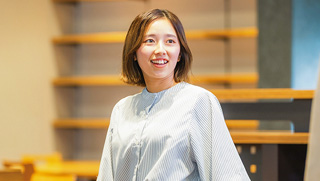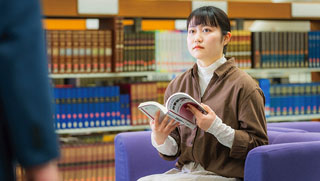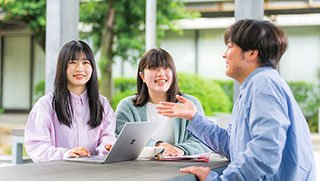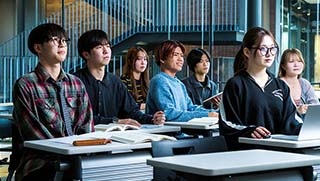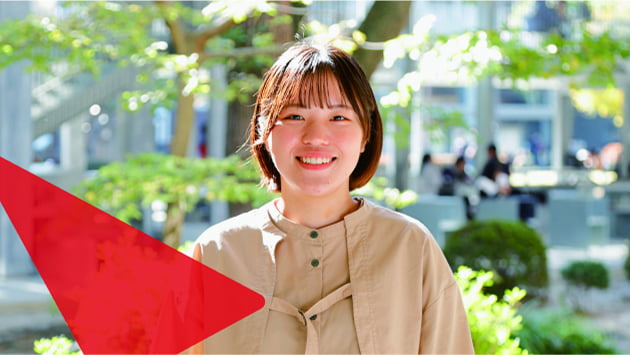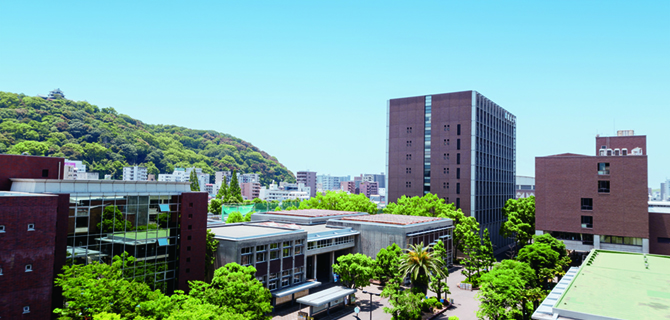Matsuyama University’s Educational Philosophy and Faculty/Graduate Course Educational Policies
The educational philosophy of Matsuyama University is derived from the founding principles of Truthful, Useful, and Faithful. The university believes these principles have played a valuable role in helping to educate future leaders to society.
Matsuyama University School Regulations Article 1
Matsuyama University sets as its goal the implementation of comprehensive technical research and education in all the sciences with a focus on economics, business, the humanities, law, pharmaceutical sciences and informatics. Matsuyama University sets as its mission the cultivation of highly educated, cultured, and talented individuals as well as extensive contribution to the development of society.
Matsuyama University’s School Precepts
Matsuyama University was founded in 1923 as the Matsuyama Higher School of Commerce. The school then developed into its current incarnation as Matsuyama University in 1989 after changing the school’s name to the Matsuyama College of Economics in 1944 and the Matsuyama University of Commerce in 1949.
The University’s first president, Akikado Kato, established “Truthful”, “Useful”, and “Faithful” as the school precepts. Thereafter, the third president, Tadao Tanaka, interpreted these precepts as follows. His interpretation was published in the student handbook in 1940, disseminating it throughout the school. These three precepts have been handed down without interruption in Matsuyama University since that time.
Founding Principles

Truthful
 Be true to the truth. Be of a manner that does not become infatuated with superficial phenomena but goes further to probe the deeper truth, that does not remain content with the withered knowledge of the day but unrelentingly pursues true knowledge.
Be true to the truth. Be of a manner that does not become infatuated with superficial phenomena but goes further to probe the deeper truth, that does not remain content with the withered knowledge of the day but unrelentingly pursues true knowledge.
Useful
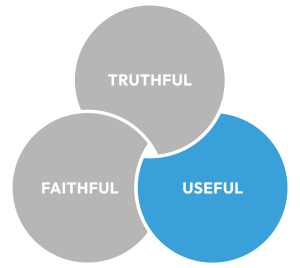 Be true to the task. Be of a practical manner that does not allow the truth to simply remain the truth but which is sure to harness it as part of one’s life in proactive and enterprising in service to society.
Be true to the task. Be of a practical manner that does not allow the truth to simply remain the truth but which is sure to harness it as part of one’s life in proactive and enterprising in service to society.
Faithful
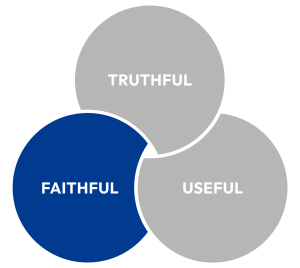 Be true to people. Be of a manner in which one purposely opens oneself to people, in which one’s honor in one’s relation with others remains unchanged throughout one’s life, and in which one strives to the utmost to take responsibility for one’s speech and behavior.
Be true to people. Be of a manner in which one purposely opens oneself to people, in which one’s honor in one’s relation with others remains unchanged throughout one’s life, and in which one strives to the utmost to take responsibility for one’s speech and behavior.
The Meaning of the Three Precepts
“Truthful” and “Faithful” present the attitude one should have towards learning; “Useful” expresses the ideal of what one should be as a person.
“Truthful” is an attitude of not being satisfied with existing knowledge and continuously learning and mastering things in pursuit of the truth. What is vital is to not be seduced by the deluge of information, instead seeking out the objective facts from amongst that deluge to probe the truth.
“Faithful” does not simply indicate the bottom-line oriented aspect of “learning the technology and techniques which will immediately be of use.” “Faithful” indicates an attitude of not just studying knowledge as information but rather engaging in learning while constantly bearing in mind pragmatic questions in order to harness the knowledge gained in one’s own life and work. This attitude of proactively harnessing the knowledge learned in University as part of everyday life is also applied in classes at Matsuyama University and is one of the distinguishing characteristics of learning in the school.
“Useful” presents the attitude one should assume as a person in interpersonal relations and in society. No one can live their lives alone. In the broader sense of our social lives – meaning friends, family, and the organizations we are involved in – it is key not only to be ethical, but also to proactively get involved with other people, be modest, and respect and share opinions. The spirit of “Useful” is the shared basis of all interpersonal relations at Matsuyama University.
The three school precepts should serve as grounding for all Matsuyama University students and teachers, but it is also most definitely a guideline for living one’s life. It is the University’s hope that all students will continue to maintain this attitude throughout their lives, even after graduation, as Matsuyama University alumni.
Our Three Educational Policies
Matsuyama University has as our mission producing talented people for the local community who are rich in humanity, knowledgeable, and highly cultured in accordance with our three founding principles of Truthful, Useful, and Faithful, thus contributing widely to the development of society, with the goal of implementing comprehensive technical research and education in all the sciences, with a focus on economics, business, the humanities, law, pharmaceutical sciences and informatics.
1. Policy for recognizing graduation and granting degrees (Diploma Policy)
Matsuyama University will approve those who have obtained the prescribed credits in the course of education of each faculty and department and mastered the following skills, and grant them a bachelor’s degree.
(1)Specialized knowledge and skills in their field of study and the education required in modern society.
(2)The practical ability to utilize their acquired knowledge and skills in society and in daily life.
(3)The communication ability needed for mutual understanding and working with a range of people.
(4)The ability to discover problems and continue to learn on their own amidst a changing society.
(5)The ability to actively contribute to their society, region, and community.
2. Policy for curriculum organization and implementation (Curriculum Policy)
The curricula will be organized and implemented for undergraduate courses based on the three founding principles and in accordance with the following policy.
(1)Liberal arts education courses will be arranged so as to foster human resources who can master the basic education required to play a role in society, adapt to changing societies, tolerate a diverse range of values, and decide and achieve their own careers.
(2)Subjects related to language culture and to health culture will be arranged to as to foster human resources who can master the abilities to use foreign languages practically, understand different cultures, communicate, and maintain their physical and mental health.
(3)Within each faculty and department, an educational program to suit each faculty and department will be organized in order to foster human resources who can develop the region through their specialist field.
3. Policy for admitting students (Admissions Policy)
Matsuyama University expects to admit the following type of student.
(1)Those who intend to independently learn in order to understand the true nature of things.
(2)Those who intend to actively utilize their learning in actual society.
(3)Those who intend to face themselves and others with sincerity and build relationships of trust.
Each faculty will accept students with these attitudes in accordance with its own admissions policy.


